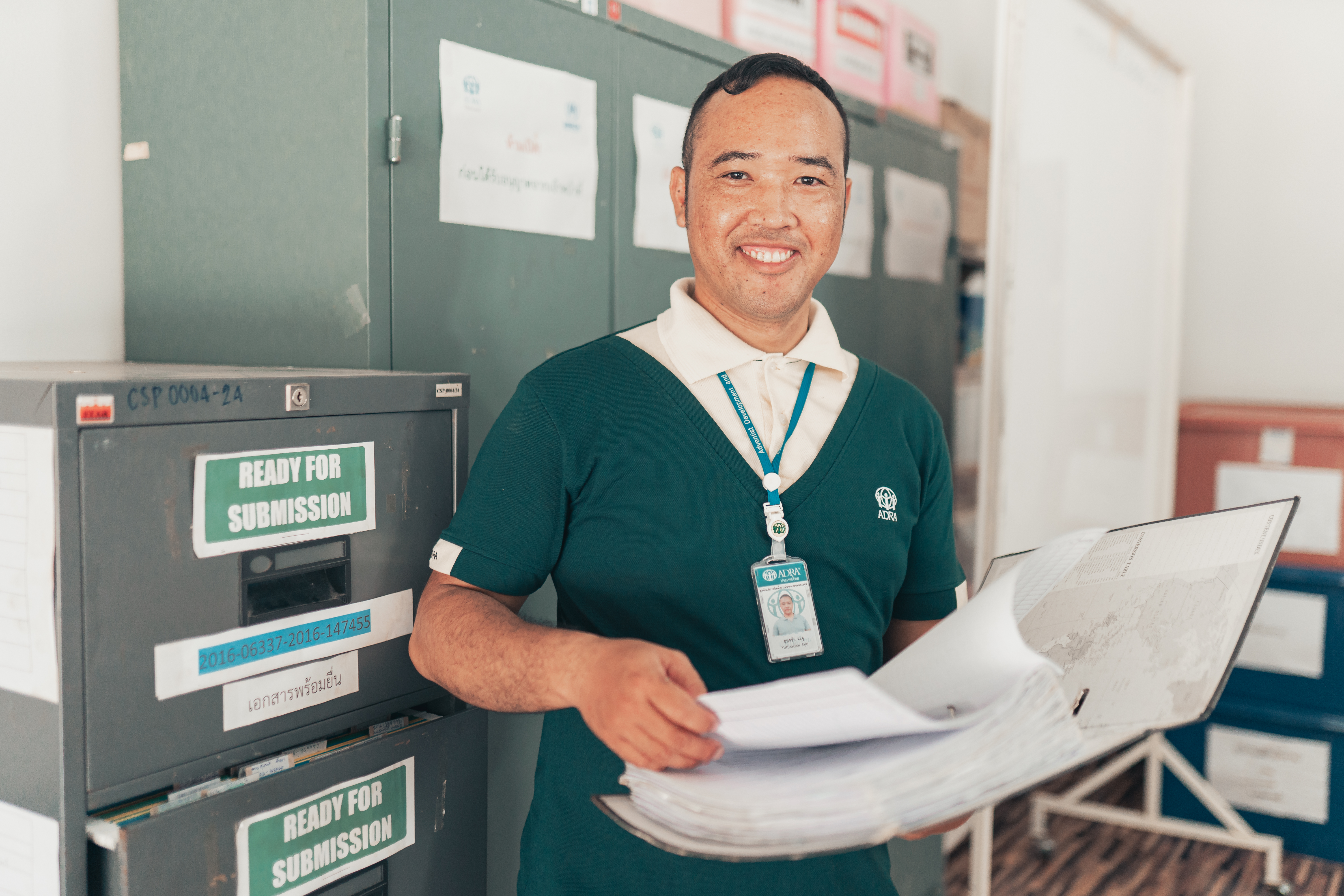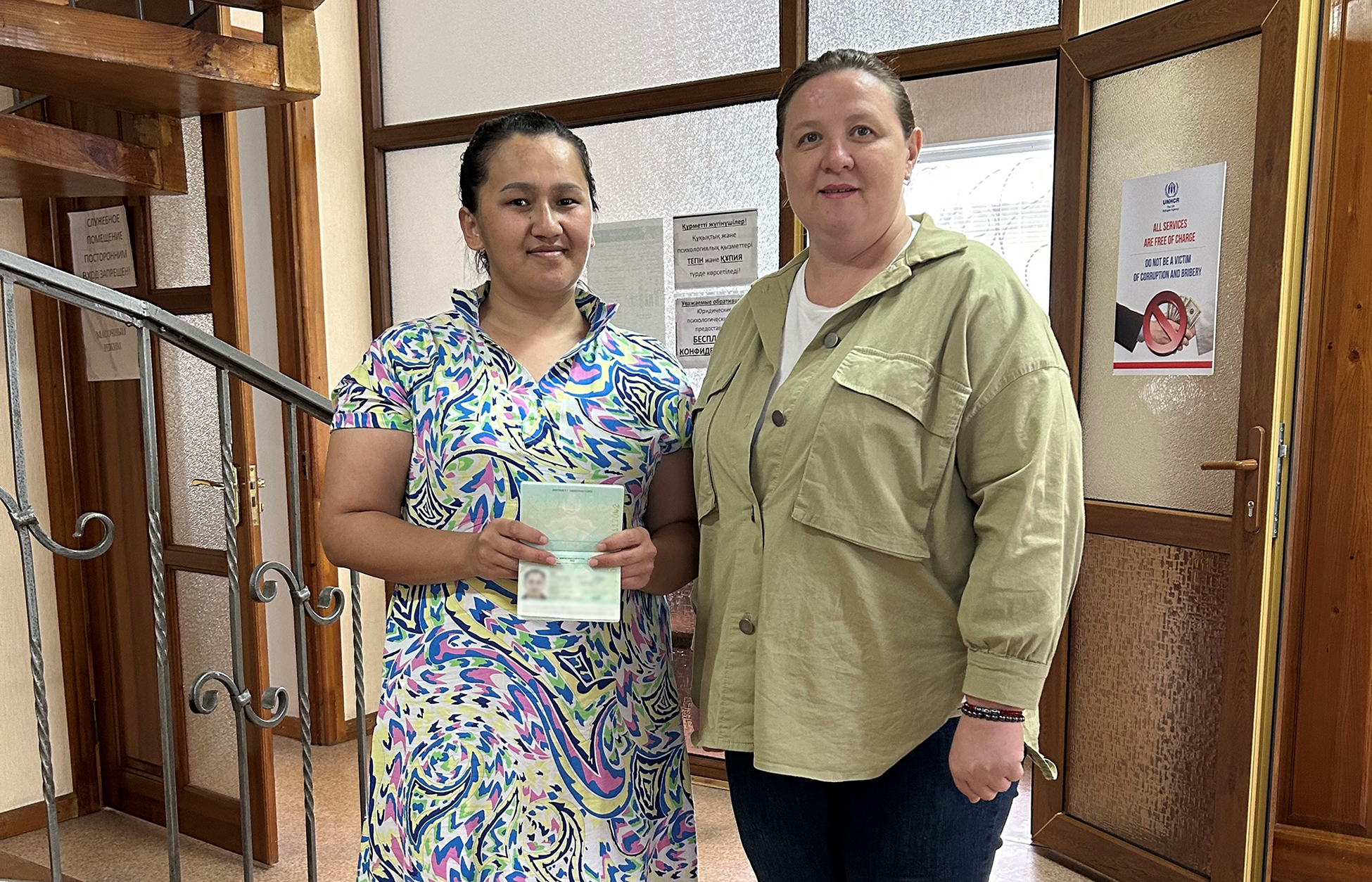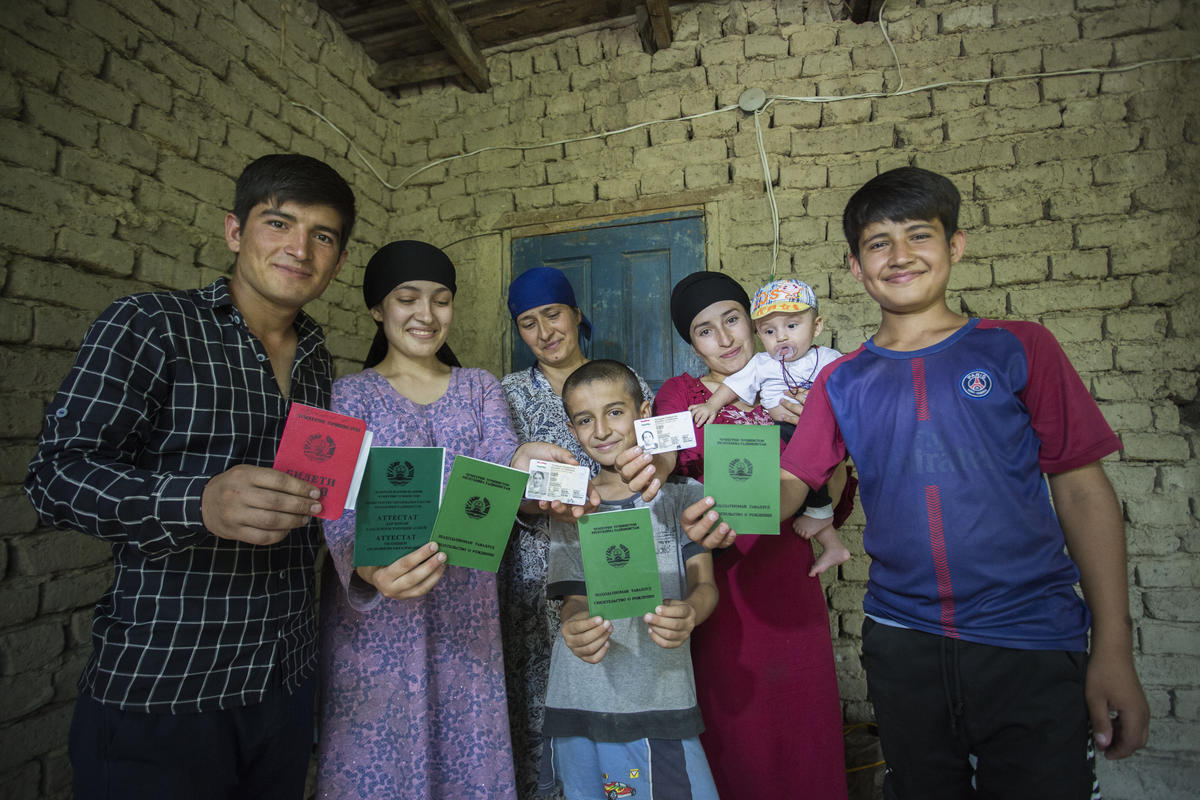'I felt like I was being reborn'

'I felt like I was being reborn'
I was born in Thailand and have always felt an attachment to Thailand and the Thai people. I have never lived anywhere else. But because my family was stateless, I was stateless, too. We didn’t have Thai nationality, or the nationality of any other country.
I am an ethnic Lahu. My family is originally from Mae Hong Son, in northern Thailand, though we moved to the neighbouring province of Chiang Mai when I was a child. In the northern part of Thailand, many stateless people are from the Lahu, Akha and Lisu tribes. Growing up, I had a 13-digit identification number given to me by the Thai government, but not Thai nationality.
“Before receiving my nationality, I lived in a state of constant worry.”
I became a Thai citizen as a teenager, when I was in Grade 8 or Grade 9. Before receiving my nationality, I lived in a state of constant worry. I felt scared whenever I happened to see police officers. Even citizens might have been intimidated when seeing police officers; but it was even more intimidating for stateless people, including me.
I also faced problems in my education. When I completed Grade 6 and was about to go on to secondary school, I could not enroll because I didn’t have nationality. I asked my teacher for advice about what to do, and whether he could help. He advised me to ask my uncle who is a Thai national to speak to the school on my behalf. After he vouched for me I was eventually allowed to continue my studies.
It hurt that other people were able to do this and that, while I had limitations on my rights – even though I was also born here in Thailand. I would ask myself why other people could do things that I couldn’t. I felt that everything was complicated and difficult, and that anything I tried to do would be blocked by obstacles.
I vividly remember that day in 2000 when my father told me and my siblings that we were going to receive nationality. We all felt very happy and were smiling as we headed over to the District Office to get our new Thai ID cards.
My father had applied for the whole family to become Thai citizens after my uncle had gone through the process. My parents had not tried to apply for nationality before then; the importance of officially having nationality wasn’t previously clear to them. They also didn’t have the knowledge of how to apply, and had to travel very far from our house to submit the application papers at the District Office.
“As a stateless person, it was like being in a state of darkness, of blurriness. After I received Thai nationality, it felt like there was light.”
When I became a Thai national, I felt like I was being reborn, like I was receiving a new life. As a stateless person, it was like being in a state of darkness, of blurriness. After I received Thai nationality, it felt like there was light. I felt like there were no more obstacles in my way, and I began to feel at ease wherever I go.
Ever since I got my Thai ID card, I no longer worry about being stopped by the police and not being able to show the correct documentation. And when it comes to education, the benefits were just as clear. After I completed secondary school, I had the opportunity to take out a government loan to pursue a university degree. If I didn’t have nationality, I wouldn’t have had access to this right. It would have been an obstacle to my further studies.
Today, I’m proud to be working as a Community Mobilizer at ADRA, the Adventist Development and Relief Agency. Around the areas where I work in Chiang Rai, there are people who remain stateless.
A main challenge is that many stateless people don’t tend to have information about the nationality application process. Accordingly, they don’t have the confidence to contact the relevant authorities and follow up the process themselves.
This is where my colleagues and I come in. We support stateless people to apply for nationality by helping them to prepare their documents and seeing whether they have the right to Thai nationality.
We encourage them to submit a nationality application, and if they have trouble communicating with officials (as some older stateless people sometimes do, as they do not speak Thai fluently), we accompany them to the District Office and help to interpret for them. We’ll also then follow up on the case periodically on their behalf.
Moreover, we disseminate information about other rights. We try to inform stateless people what rights they have, for example in relation to important matters like education, travel and work.
Even though challenges remain, I have seen through my own experience that ending statelessness is possible. If we all work together – from the government and civil society to academia and the mass media – we can all contribute to resolving this problem. If we collaborate and keep in mind that we all have the same goal, we can ensure that no one is left stateless.









